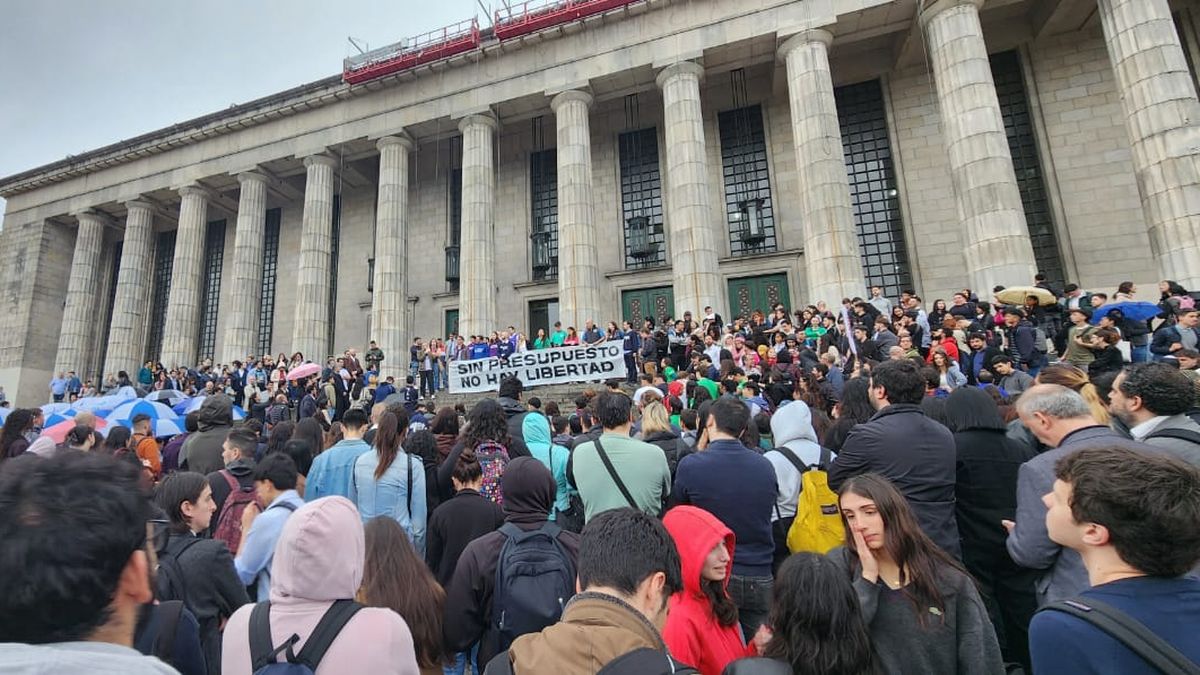The conflict between Government and the educational community continues to escalate: there are already dozens of study houses taken over in the country in response to the decision of the Executive Branch to veto the university financing law. From the National University of Tucumán (UNT) to the National University of Comahuethousands of students, teachers and non-teachers carry out forceful measures in demand of a larger budget and in repudiation of Javier Milei’s economic plan.
University conflict: dozens of faculties taken over by student assemblies
On Wednesday, October 9, Chamber of Deputies confirmed the maintenance of the Milei’s veto of the university financing law. There were 159 deputies who voted in favor of insisting on the bill, while 85 voted against and 5 abstained. Since then, thousands of students throughout the country called to demonstrate against the decision of the Executive Branch.
Take Medicine.jpg
Dozens of faculties throughout the country hold assemblies where force measures are voted on.
As detailed by the general secretary of the Student Center of the Faculty of Philosophy and Letters (CeFyL-UBA), Luca Bonfante, at this moment there is “almost 100 faculties taken“The student assemblies were replicated throughout the country and other actions were added to the measure of force, such as public classes and street cuts.
The conflict is, without a doubt, national in nature. The measures cover the National University of Buenos Aires (UBA); from La Plata (UNLP); from Córdoba (UNC), San Luis (UNSL), Tucumán (UNT), Mar del Plata (UNMdP), Comahue (UNComa), Salta (UNS), San Juan (UNSJ), and those in the Buenos Aires suburbs such as Luján (UNLu), General Sarmiento (UNGS), Avellaneda (Undav), José C. Paz (Unpaz) and threaten to continue spreading.
At the UBA the claim even reached those faculties that historically had a less conflictive position. In the last hours, the students took the headquarters of Law, a historic measure for the institution.
Students and teachers protest against Milei’s decision to veto the university financing law and demand that the games be expanded planned for universities. Along these lines, university teachers called for a new strike for this jThursday, October 17 to emphasize his salary claim.
“The Trade Union Front has resolved the deepening of the fight plan with a horizon of dispute with the national government that has deprived us of the tool of the University Financing Law,” they stated in a statement from the Union Front of National Universities.
Javier Milei defended himself and assured that the university will continue to be public
In the midst of the conflict, the President gave a television interview where he assured that national universities will continue to be public and “non-tariffed.” “The public University is not in discussion, nor is it in discussion that it is not subject to tariffs,” he stated.
Javier Milei Palacio Libertad Public University
Previously, on Saturday during the presentation of the renamed Libertad Palace (former Kirchner Cultural Center), the president had assured that “the myth of free university becomes a subsidy from the poor to the richwhose children are the only ones who go to university.” “The uncomfortable truth about Argentine education is that The national public university today serves no one except the children of the upper class, the rich and the upper middle class.“Milei said on that occasion.
This Tuesday, the libertarian leader did not escape questions about the conflict and questioned members of the educational community: “Why don’t they want to be audited? “He who is dirty does not want to be audited.”
“Here is the Budget, tell me how we are going to fix it: I pay the interest on the debt, do whatever you want with the rest, but I am not going to raise taxes or take on new debt,” concluded the President on university financing.
Source: Ambito
I am an author and journalist who has worked in the entertainment industry for over a decade. I currently work as a news editor at a major news website, and my focus is on covering the latest trends in entertainment. I also write occasional pieces for other outlets, and have authored two books about the entertainment industry.




